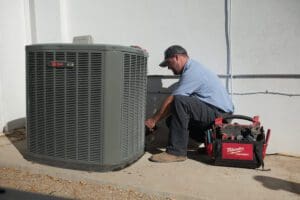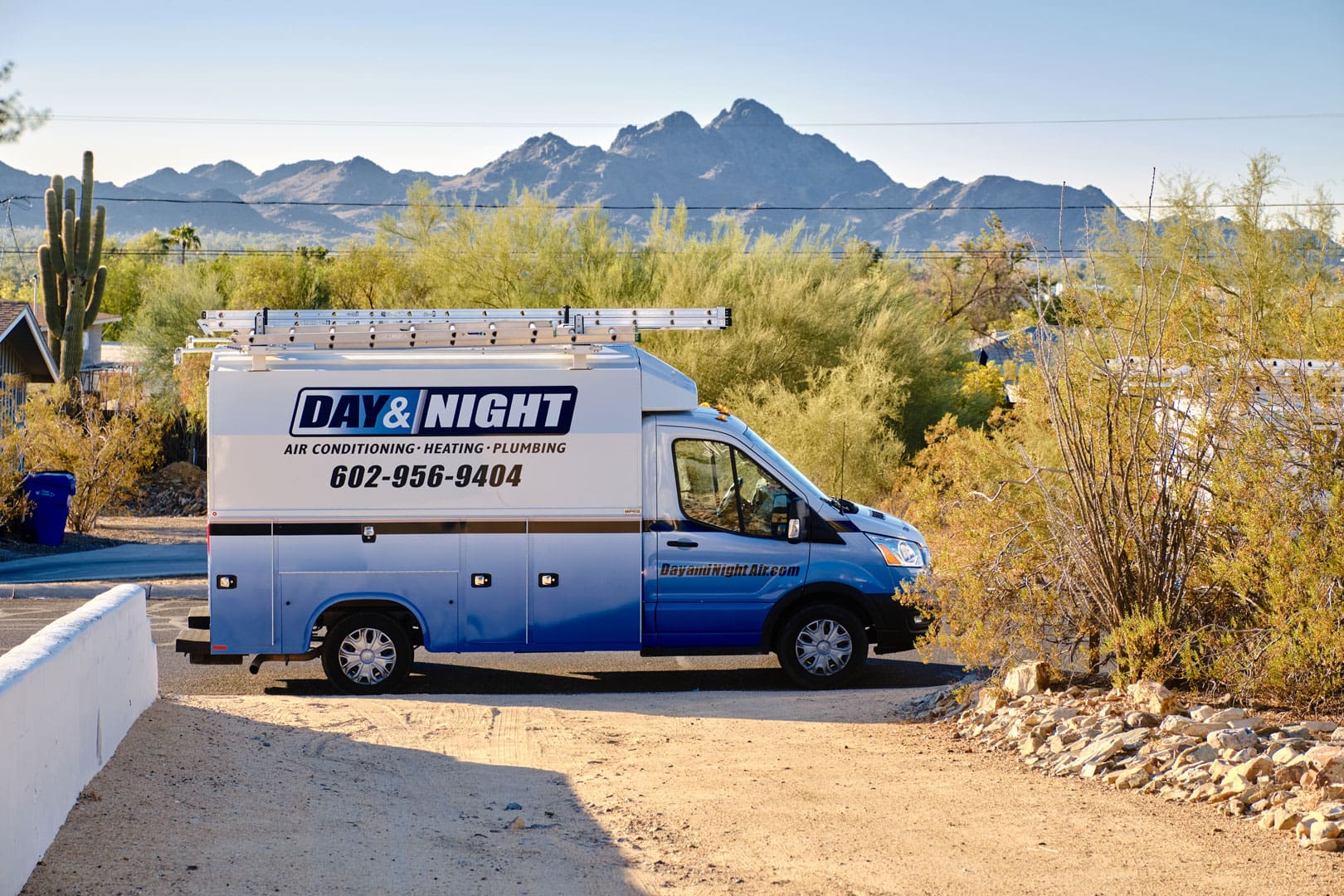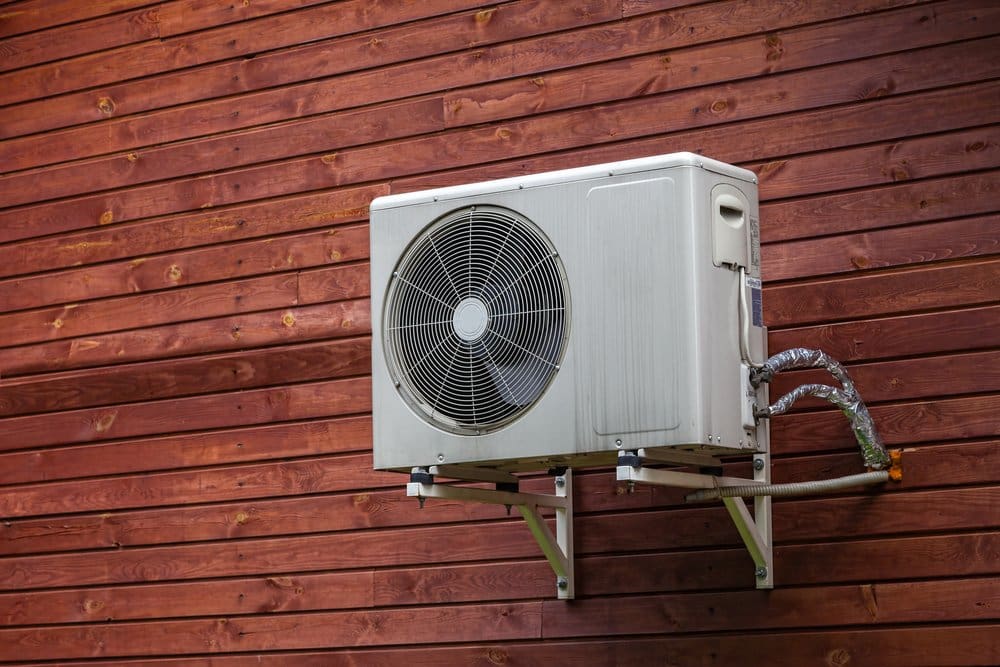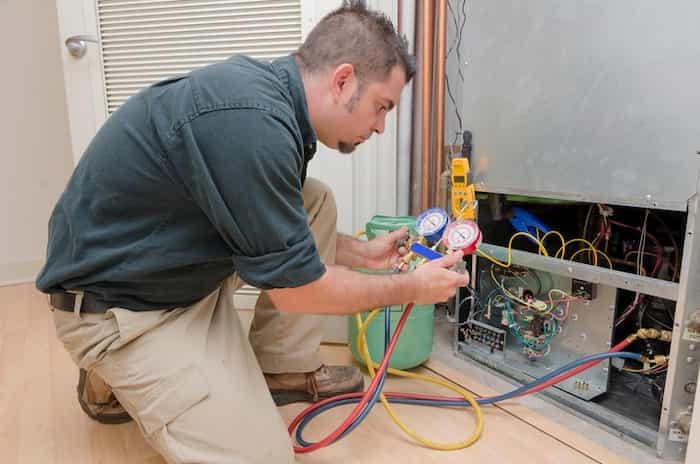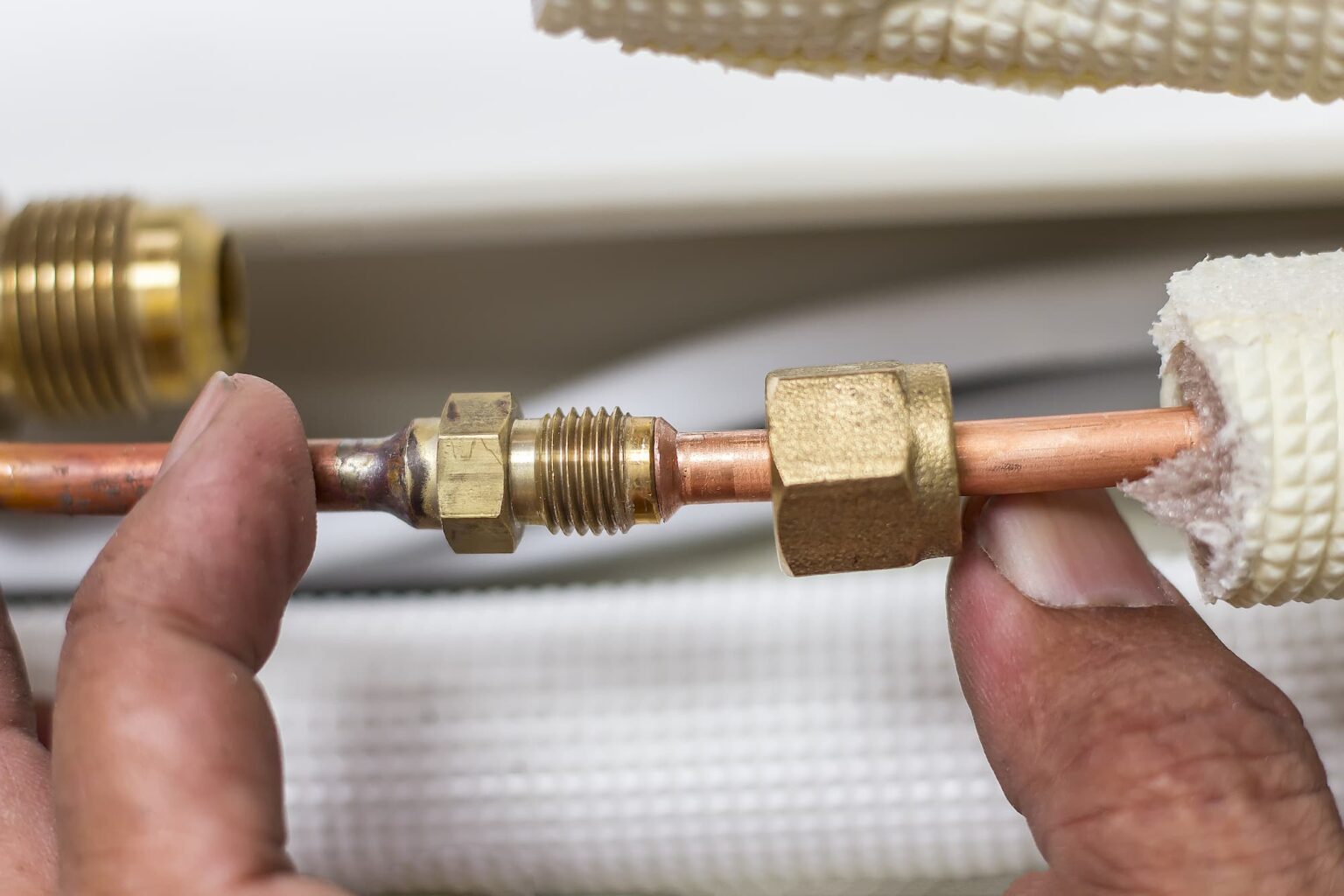When a furnace or air conditioner turns on and off constantly, it has an issue with short cycling. An HVAC unit that short cycles will run for a few seconds and then shut off. This happens over and over, causing your furnace to run almost constantly. What causes short cycling in a furnace in Phoenix, Arizona?
To really understand the answer to that question, it’s important to know how a furnace works in the first place. Modern heating systems have many components and safety features, and if one of them malfunctions, it can lead to short cycling. Fixing the problem once-and-for-all means figuring out the underlying cause.
How Does a Furnace Cycle Work?
The beating heart of a gas furnace is the burner. This is where natural gas is ignited, producing flames. A heat exchanger transfers the heat to air flowing into the system. Then, a blower fan pushes the hot air through your home’s ducts. At the same time, return vents draw in colder air from the rooms, bringing it to the burner and completing the cycle.
During this entire process, an exhaust flue allows smoke, gases, and excess heat to escape the house, usually through a metal vent on the roof. HVAC systems also have a bunch of safety sensors that keep an eye on burner temperature and exhaust flow. This keeps your family safe by shutting off the furnace if it gets too hot. Electric furnaces operate using the same principle, but without the burner. Instead, they use electric heating elements to warm incoming air.
Is It Normal for a Furnace To Shut Off Frequently?
How often should your HVAC system turn on and off? Normally, a furnace should run through approximately three to eight on-off cycles every hour. If it’s really cold outside, it may turn on more frequently to keep up with heating requirements.
Of course, the problem isn’t just how often the furnace turns on and off. It also has to do with how long each cycle lasts. When something is wrong with the system, the furnace usually only runs for a few seconds or a minute before turning off again. If that sounds like what’s happening, then your unit is probably short cycling.
What Causes Short Cycling of HVAC Systems?
There are many possible causes of furnace short-cycling. Here are a few reasons that furnaces (and air-conditioners) can get stuck with this issue:
- Clogged air filters: Filters are designed to improve your home’s air quality. Over time, they can get clogged by accumulated dirt, debris, or grease. When the blower motor can’t draw in enough air, the furnace can overheat and trip a safety sensor called the high limit switch. This forces the system to shut off immediately.
- Closed vents: Whether the intake vents are blocked or the heat distribution vents are closed, the result is the same. Your furnace will start to overheat. It’s important to leave vents open even in rooms that you’re not using as much.
- Malfunctioning thermostat: Sometimes, the problem isn’t with the furnace itself. A faulty thermostat could be sending incorrect signals to the heating unit, telling it to turn on and off constantly. Another possibility is that the thermostat’s sensor is located in direct sunlight. It may be getting confused between the home’s actual temperature and what its sensors are reading.
- Worn blower motor: If your home has an older furnace or HVAC unit, it’s possible that the blower motor has reached the end of its life. Without the blower motor, the furnace can’t operate correctly. An easy way to tell if this is the problem is to put your hand up to one of the vents. If the system is running, but you don’t feel any air coming out, there’s a good chance the blower is to blame.
- Flue obstruction: Proper venting is vital for gas furnaces. The problem is that sometimes little critters decide to make their home in the flue’s warm interior. Any kind of blockage leads to an accumulation of gases, which trips a safety relay called the flue limit switch.
- Improper furnace size: Some HVAC systems are simply too big for smaller homes. More power isn’t always a good thing when it comes to heating and cooling. If your furnace puts out too much heat too quickly, each cycle will probably only take a few seconds.
- Faulty sensors: The problem may be that one of the system’s safety sensors is damaged. For example, a malfunctioning temperature sensor may be saying that the home is too hot, while the thermostat says that it’s too cold. The furnace isn’t sure what to believe, so it turns on and off quickly.
When in doubt, call one of our professionals for a high-tech system diagnostic. We can get to the source of the problem quickly. Our tools let us check everything from the thermostat to the blower motor without making a mess.
Does Constantly Shutting Off Damage Your Furnace?
Short cycling is a problem you don’t want to ignore. For one thing, constantly turning on and off is bad for the HVAC unit or furnace. It causes a lot of stress to system components, putting them through far more cycles than normal each day. This can lead to premature failure of important parts, shortening a furnace’s life significantly.
This problem can also create a safety hazard. After all, making sure sensors and exhaust flues always work correctly is important to keeping your family safe and sound. Fortunately, most furnaces are designed to turn off immediately if any of these safeguards fail.
One of the biggest areas your wallet can take a hit from furnace short cycling is in energy costs. Having to turn on and off consumes a lot of electricity or fuel, and the system may run this way all day and all night long. That can bring a huge bill at the end of the month. At the same time, your home may experience uncomfortable temperature swings, with certain rooms feeling much hotter or colder than others.
How Can You Fix a Furnace That Shuts Off a Lot?
Is there anything you can do to take care of a furnace that constantly shuts off? Actually, yes. In many cases, homeowners can save time and money with a few simple steps.
First, check the air filters. Over 50% of the time, short cycling is caused by clogged air filters. It’s usually pretty easy to take a look at a furnace or air-conditioner’s filters. If they look dirty, either clean them or replace them.
Next, make sure the vents aren’t closed. They should be open in every room to maximize airflow. If you notice several that are closed, open them and see if that solves the issue. Also, check that the thermostat is set to heat mode. If you accidentally have it turned to cool, it won’t matter how much you increase the temperature.
For anything more complex, it’s usually best to call our team for help. Exhaust flues and blower components can get very hot, so trying to handle repairs yourself can lead cause accidents, shocks, or burns. Instead of messing around with system parts and possibly voiding your warranty, search for “heating services near me” and let our pros take care of things.
What Can You Do to Prevent Short Cycling on a Furnace or Air-Conditioner?
Modern HVAC units can match the heating and cooling needs of the home much better than older systems. However, even new furnaces need some tender loving care to operate at peak performance.
Here are a few tips for keeping your furnace in excellent working condition:
- Change air filters regularly: Depending on the amount of dust that accumulates in the home, always clean or change air filters every one to three months. Filters are pretty cheap, so many homeowners opt to replace them.
- Keep clutter away from vents: Besides making sure the home’s vents are open, check that you don’t have boxes or furniture in the way. If there are vents below a bed, sometimes they can get covered by storage containers, toys, or clothing.
- Improve your home’s energy efficiency: Another way to keep your furnace from turning on and off so frequently is to improve home insulation and check seals on windows. This has benefits for reducing energy costs during summertime heat, too.
- Schedule preventative maintenance: Just like an apple a day keeps the doctor away, regular maintenance on your furnace can prevent a lot of problems. This includes checking key components, cleaning ducts, and handling small repairs before they lead to big issues.
If your furnace or HVAC system is getting pretty old, you may decide that it makes sense to replace it. In that case, you can get an energy-efficient model that takes care of heating and cooling effortlessly.
Why Should You Call an Expert for Short Cycling Issues?
At Day & Night Air, we have the experience needed to find and repair problems with any kind of HVAC system in Phoenix. That saves you time and money. It also helps to prevent breakdowns that leave your home too hot or too cold when the weather changes. Best of all, we handle everything, so you can feel comfortable no matter what your schedule is like.
Our fantastic team is a big help with short cycling problems with furnaces and air conditioners. First, if you’re buying a new HVAC unit in Phoenix, we’re ready to help you pick one with the energy output that’s right for your home. Afterward, we take care of installation the right way, ensuring that the thermostat is wired correctly and airflow reaches every room of the house.
We’re also equipped to take care of preventative maintenance, including areas such as flues, blowers, and ductwork. If we detect any problems, our technicians can perform repairs immediately. Whether you need assistance with troubleshooting, we’re always ready to help. Call Day & Night Air to schedule an appointment right away.
Image Credit: Shutterstock By ALDECAstock

